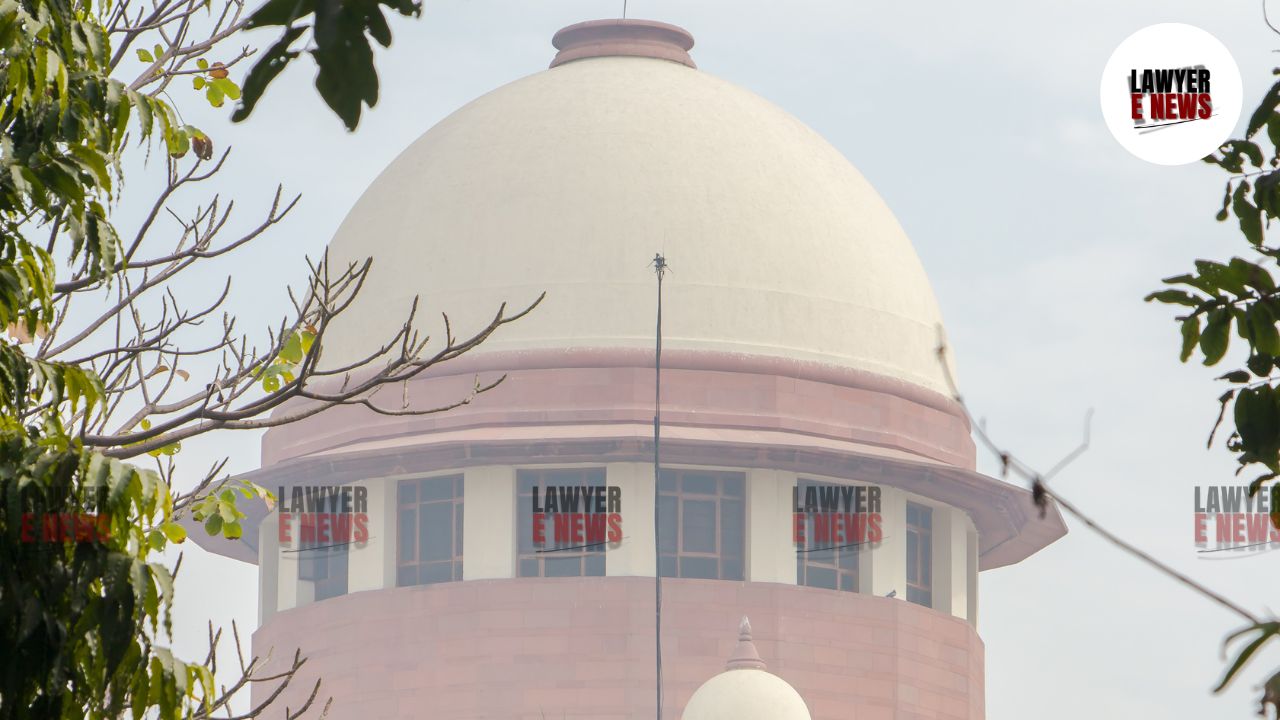-
by Admin
15 February 2026 5:35 AM



In a transformative decision rendered on November 22, 2024, the Supreme Court of India awarded enhanced compensation to K.S. Muralidhar, a victim of a catastrophic road accident, increasing the amount to Rs. 1,02,29,241. This case (K.S. Muralidhar v. R. Subbulakshmi & Anr., Civil Appeal No. ... of 2024) marks a significant step in recognizing the extensive impact of pain, suffering, and loss of life opportunities due to life-altering injuries.
On August 22, 2008, K.S. Muralidhar, employed as an Assistant Team Leader in L.M. Glassfibre (India) Pvt. Ltd., sustained grievous injuries when his company vehicle collided with a rashly driven container lorry. The impact resulted in 100% functional disability, rendering him wheelchair-bound and entirely dependent on others for daily activities.
The claimant, then 37 years old, petitioned for compensation. The Motor Accidents Claims Tribunal awarded Rs. 58.09 lakh. Dissatisfied, both the insurer and Muralidhar appealed to the Karnataka High Court, which revised the compensation to Rs. 78.16 lakh. The claimant subsequently approached the Supreme Court seeking further enhancement.
Supreme Court’s Observations: Addressing Pain, Suffering, and Future Prospects
The bench, led by Justice Sanjay Karol, reaffirmed the principles of “just compensation”, emphasizing that damages must attempt to restore the claimant to a position akin to pre-accident conditions. The Court noted:
“Compensation must reflect the irreparable changes in the trajectory of life. Although no amount can fully restore what has been lost, the monetary relief must alleviate the victim’s inability to secure basic amenities and sustain a dignified life.”
Referring to the Constitution Bench decision in National Insurance Co. Ltd. v. Pranay Sethi, the Court held that Muralidhar was entitled to 50% of his income as future prospects, considering his permanent employment and age at the time of the accident. Calculating his adjusted income, the Court observed:
“The total monthly income, including future prospects, amounts to Rs. 41,800. Accordingly, compensation for loss of future prospects is computed as Rs. 75,24,000.”
This revision marked a significant increase from the High Court’s earlier calculation of Rs. 70.22 lakh.
The Court took a detailed view of the physical and emotional toll inflicted on the claimant. Citing observations from a medical expert, Justice Karol highlighted:
“The claimant is wheelchair-bound, with no movement in his lower limbs and minimal control over his upper limbs. He has lost urinary and bowel control and requires assistance for all activities. These conditions signify lifelong suffering and deprivation.”
Recognizing the abstract yet profound impact of pain and suffering, the Court referenced definitions from scholars and case law:
“At the core of suffering is the sense that something is irreparably wrong with one’s life. It is the negation of what could have been right.”
In Kajal v. Jagdish Chand, the Court had awarded Rs. 15 lakh for pain and suffering in a case of 100% disability. Aligning with such precedents, the bench awarded Muralidhar Rs. 15 lakh under this head, stating:
“This amount reflects the claimant’s physical discomfort, emotional trauma, and the lifelong vulnerability inflicted by the accident.”
The Court retained the Tribunal’s award of Rs. 1 lakh for future medical expenses, despite the claimant’s plea for enhancement. It underscored the necessity of proportional awards under specific heads.
After recalculating the heads of compensation, the total amount payable to Muralidhar was enhanced to Rs. 1,02,29,241, inclusive of interest at 6% per annum from the date of filing. Justice Karol concluded:
“The revised compensation reflects a fair, just, and reasonable award that considers the irreversible nature of the claimant’s injuries and the loss of life’s pleasures.”
This decision underscores the judiciary’s evolving perspective on pain and suffering as distinct components of compensation in accident cases. By aligning Indian jurisprudence with global principles, the judgment strengthens the commitment to dignified and adequate remedies for victims of grievous injuries.
Date of Decision: November 22, 2024
